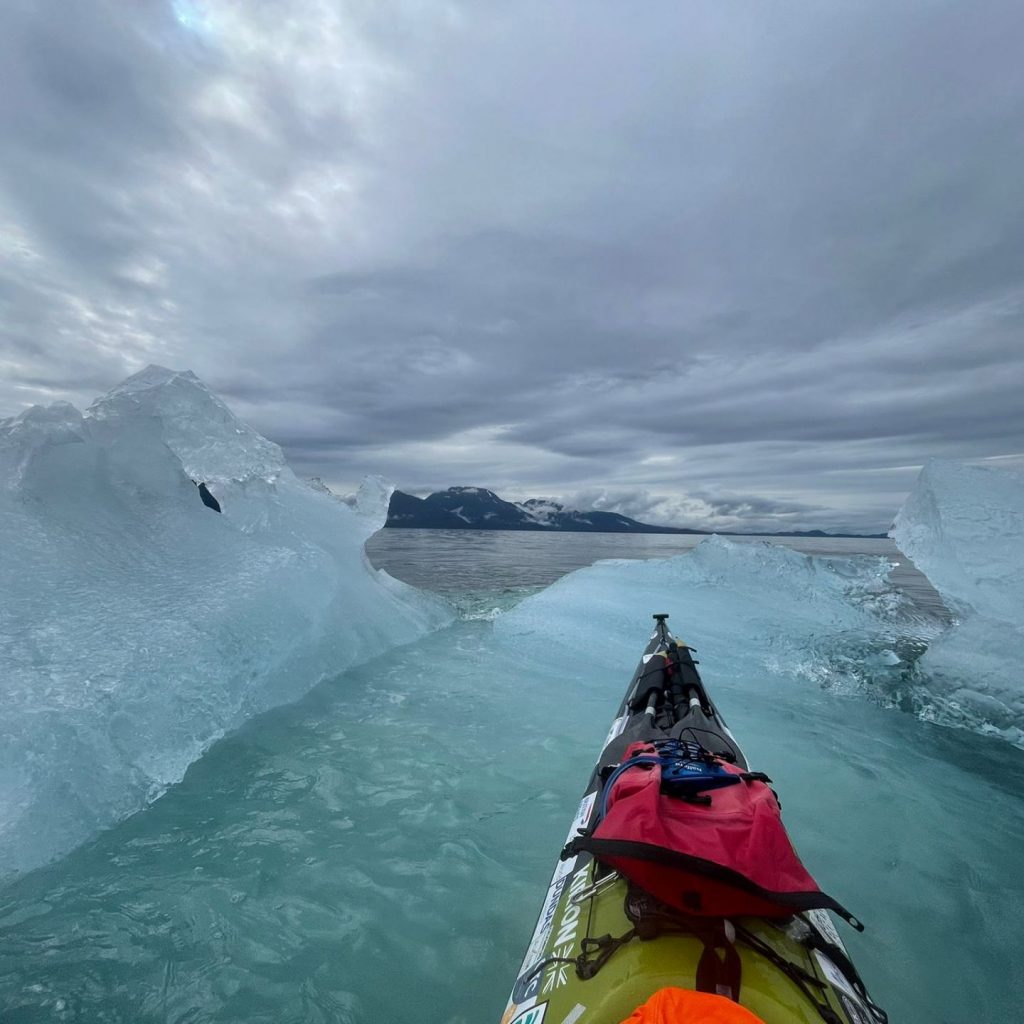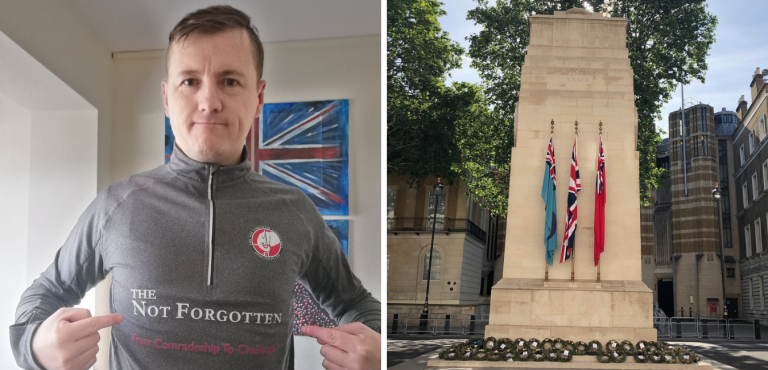Intrepid kayakers prove there is life beyond injury for veterans
Inspirational team of veterans ‘Team Forces of Nature’ complete their epic 2,000km kayak expedition up the Inside Passage of Canada and Alaska.
At midnight last night, a team of injured British veterans made landfall in Skagway, Alaska, to complete an extraordinary 2,000km fundraising adventure kayaking unsupported from Washington through British Columbia into Alaska: an infamous route known as the ‘Inside Passage’ – with a forbidding coastline, unpredictable waters and dangerous weather and wildlife.
Their aim: to encourage all veterans to strive daily for their personal goals and refuse to be limited by their injuries or trauma; at the same time raising vital funds for veterans’ charity The Not Forgotten.
The Stats:
Team Forces of Nature: 8 men – 2 able bodied civilians and six veterans who served in the Falklands, Northern Ireland, Iraq and Afghanistan (over 100 years of military service between them); now living with a variety of injuries: head/abdomen gunshot wounds, above-knee amputations, viral-induced paralysis and PTSD.
4.5 years in the planning.
6 kayaks, carrying not just the team but all their kayaking and camping equipment, food and medical supplies.
86 days since they left their start point of Steilacoom, near Seattle.
1,995 km paddled (1,240 miles)
Significant amounts of money and awareness raised for The Not Forgotten, a remarkable charity close to the team’s hearts.
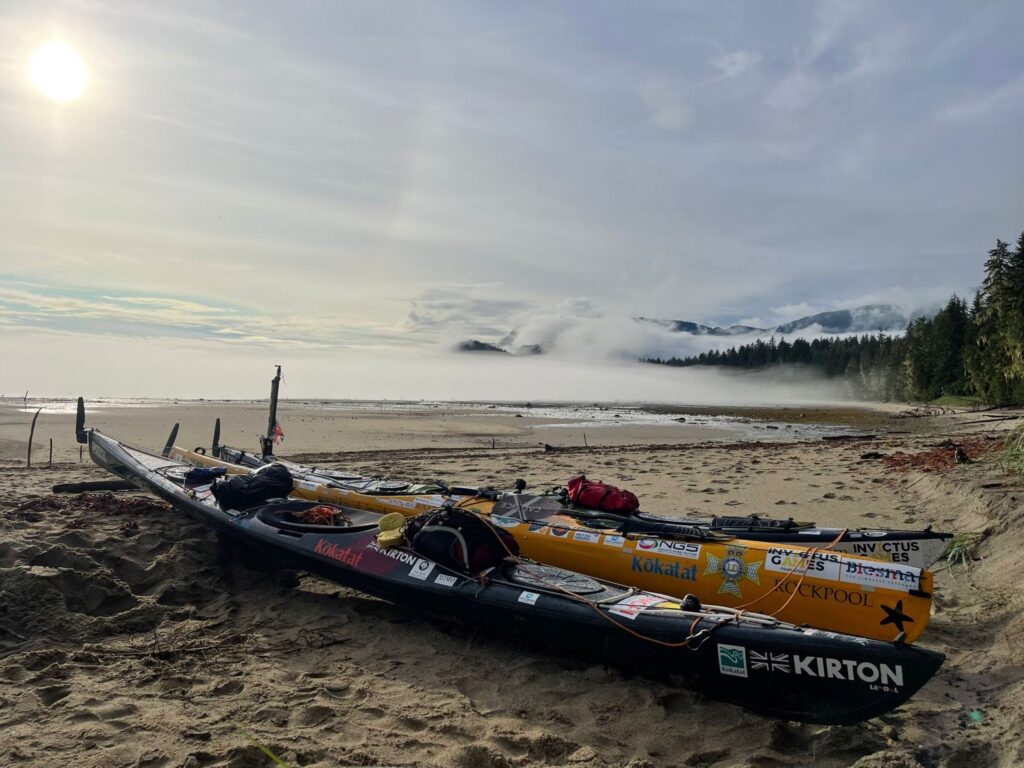
The Story:
Four years in the planning…
Team Forces of Nature have trained for their expedition for over four years. Their first plan to kayak the Amazon blocked by the pandemic, they refocussed on Canada and Alaska as another of the world’s most challenging kayak routes. Following many months kayak training alongside rigorous medical, safety and navigational practice, the team finally set off for Washington State (USA) where their spectacular route would begin.
Setting out into the wilderness
After a week’s delay while their kayaks and supplies were held up in transit, the men finally struck out from dry land at Steilacoom in Washington State on 7th May 2023, and soon crossed into Canadian waters, navigating up the coast of British Columbia at the rate of around 24km a day.
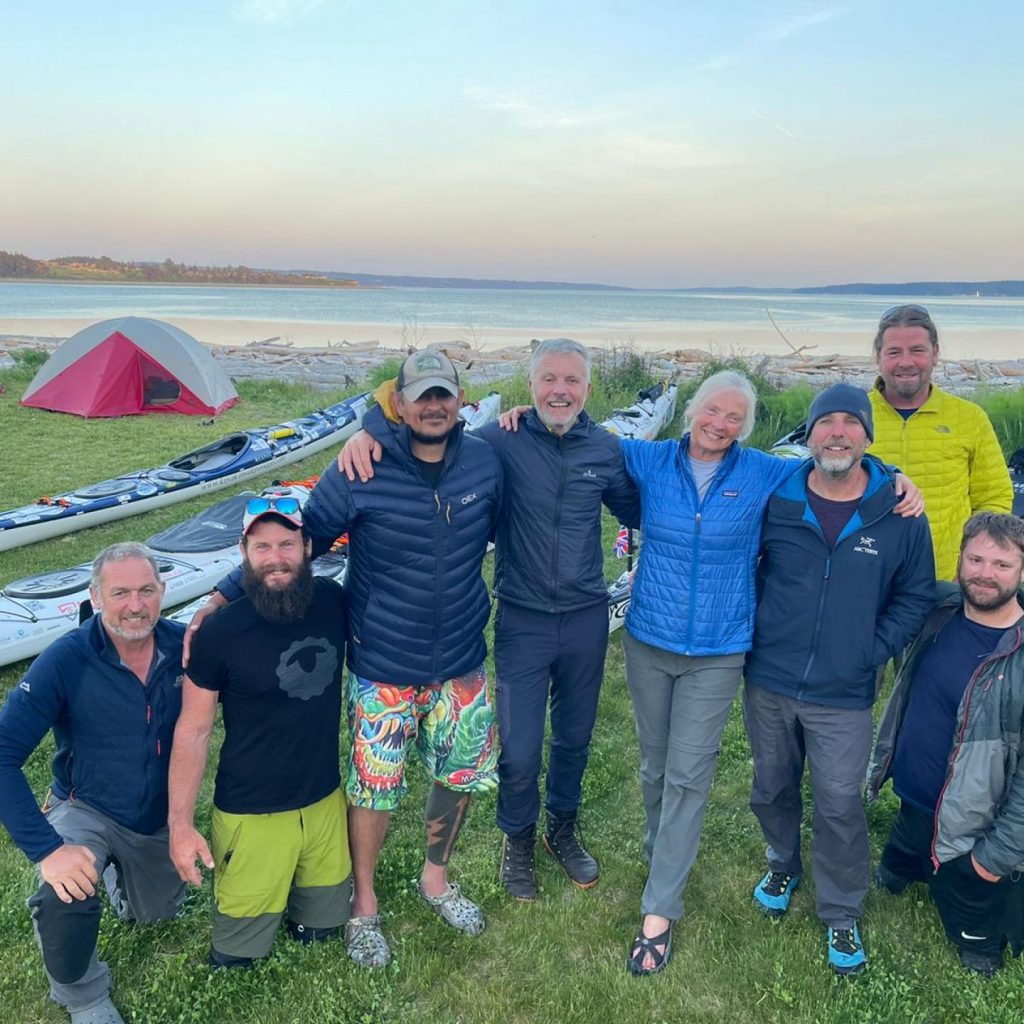
An extraordinary physical and mental challenge
The challenges of the expedition have been brutal: freezing water temperatures, glaciers, rip tides, rapids, whirlpools and 5-6ft swell, illness, equipment failure, howling winds, lashing rain and fog, the very real threat of bears, minimal food supplies, almost unrelenting physical pain, and the mental battle to keep pushing on through adversity, low spirits or at times boredom.
Two of the team being double amputees has presented further risk and challenge, with specially designed kayaking prosthetics and well-practised emergency procedures. Other team members struggle daily with PTSD and head injuries affecting mental processing. Not a mean feat to set out unaided through the wilderness – but a challenge these seasoned explorers simply relished.
With spectacular rewards
Set against such hardship have been the truly spectacular rewards: the breathtaking beauty of the landscape, stunning sunrises and sunsets, a transformative evening spent with the Heiltsuk Nation peoples, frequent kindness from strangers encountered along the way, and astonishing close-up encounters with wildlife from eagles to otters, bears to orcas and humpback whales. Combined with the almost inestimable feeling of belonging to an extraordinary team striving together towards a life-affirming goal.
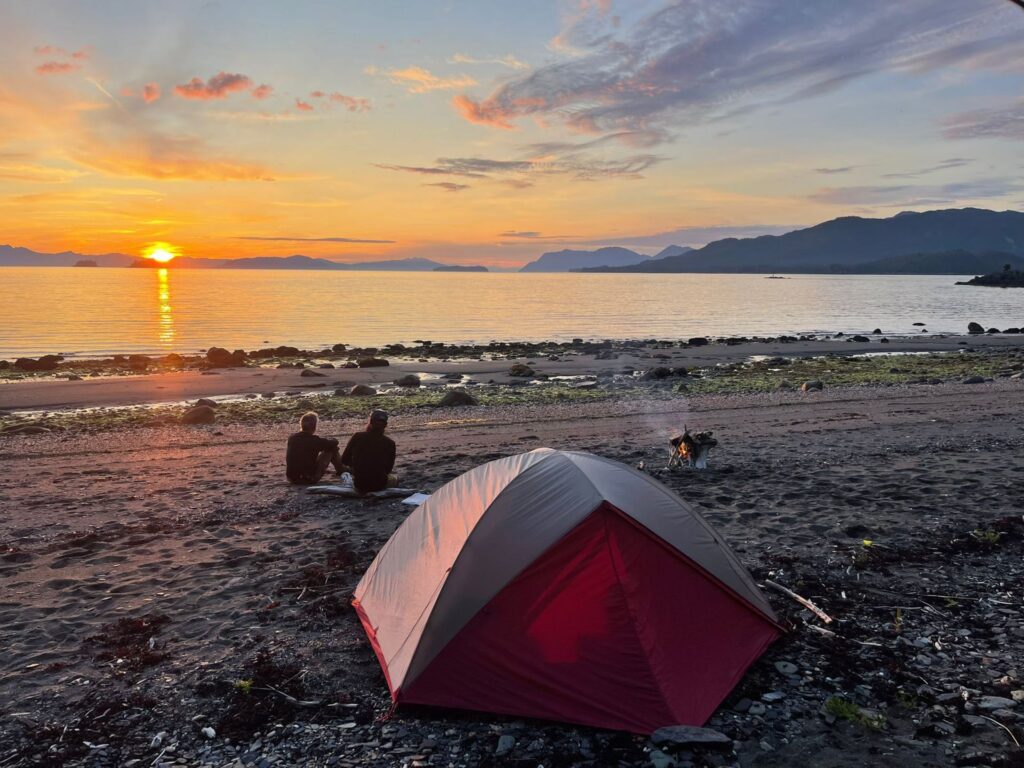
Sheer mental resilience
The mental resilience the men have all developed throughout their experience has surprised even themselves. The mental strength to not only embrace an endurance adventure that few of us would dream of, but to keep going over almost three months forcing yourself to get up and repack the kit each morning whatever the weather conditions, keep negative thoughts, homesickness, frustration and tensions at bay and put perhaps 19,000 paddle strokes a day – through dangerous situations or through the draining monotony of pulling against tides to travel exhaustingly small distances.
To know that you have conquered all of that as well as experiencing all the highs and rewards: truly life-affirming.
From tough decisions to triumph
Sadly for the team, the delay to their departure on Day 1 altered all their timings and at Day 72 forced a difficult decision. Five of the men took the very tough call to leave the expedition at that point with heavy hearts to return home to job and family commitments. Three remained, dedicated to carrying on to finish the epic challenge on behalf of the entire team. Theo, Cayle and Marty completed the final two weeks, conquering icebergs, rip tides and thunderstorms to arrive triumphantly into Skagway at midnight last night.
In their own words:
“Why paddle the Inside Passage? To dance along the edge of control and disaster. Learning the skills and discipline to take on these environments and test yourself, to push further than you thought you could. To work as team, having each other’s back when the going gets tough, fulfilling that desire to achieve in the harshest environments….”
“As we turned to the headlands the sun started to break through: what a sight to behold. This golden staircase appeared on the water through snow-capped mountains; misty outcrops of ragged coastlines – we took a couple of minutes just taking in this beauty, lost in the moment just ‘being’, and feeling kinship with explorers and kayakers past and present…”
“The little voice in your head, that flurry of negative thoughts, that little whisper becomes a scream that tries to drown out everything else. You can either listen to that scream or do something about it. The body is a machine that you tell what to do and it will listen and those fibres, sinew and muscles will act accordingly. So you tell the machine what to do: you will put that paddle into the water, you will push with your leg, you will rotate and you will do it until I tell you we are at the campsite. Feel the connectivity with the kayak, feel the waves, breathe, relax, get yourself back into your cadence, keep the momentum. Look at what you achieved so far! Look at the beauty in everything. Give yourself credit. Time to smile, be a better person than yesterday.”
“We have come so far and have created a bond over the last four and half years in training and preparation. The team stepped up to this challenge not knowing how to kayak, navigate the sea and coastline, or live out of a boat. For the majority, no experience of endurance adventures. With injuries and illness that would hinder most even to dream of taking on such a demanding task. These guys have repeatedly proven, they have what it takes.”
